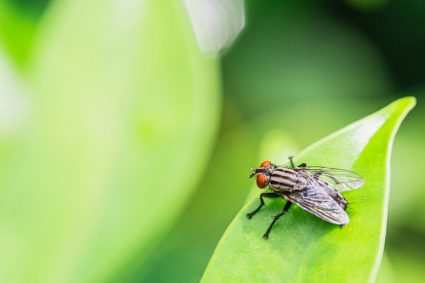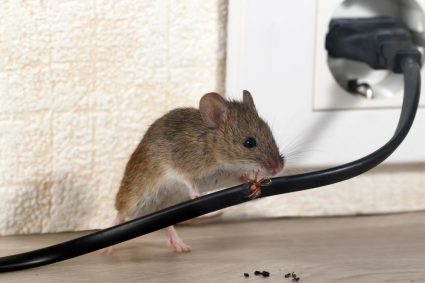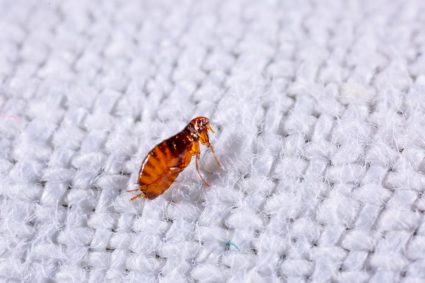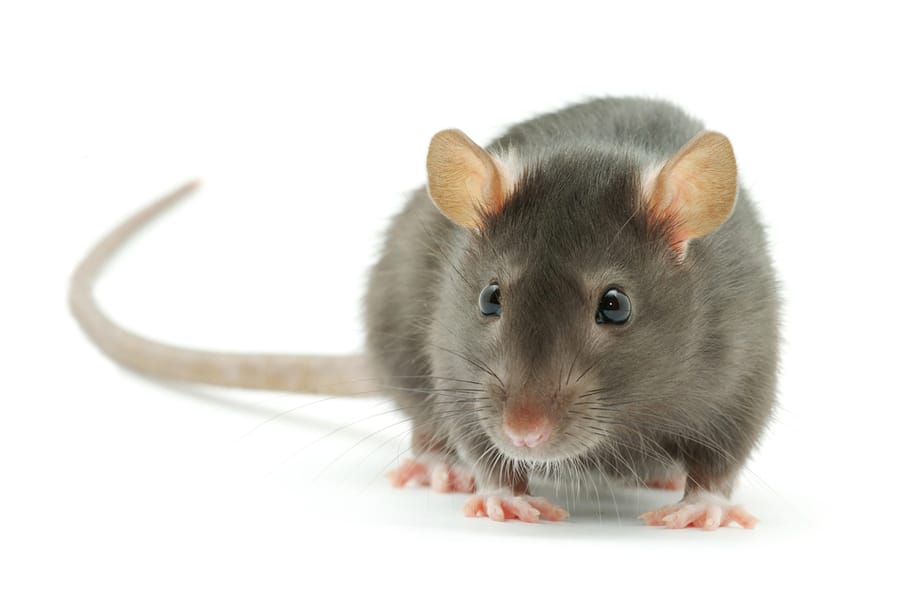
We have all been there where we try to make it through the day, and suddenly we hear a squeaking sound and see them run up and down.
Rats are witty, fast, and the biggest threat to our space. It’s usual to get annoyed by these little creatures and wonder what works to keep them away.
Rats are everywhere. They live behind furniture, run into our attic, and even nest under sinks. But that doesn’t make them invincible. What if we could stop them from coming into our spaces in the first place?
There are ways you can deter rats from entering your space, some of which rely on scent. The scent method is incredibly effective, and below are the types you can use:
- Natural scents (essential oils, plants, and herbs)
- Spicy scents (chili powder, red pepper, black pepper)
- Chemical scents (ammonia and bleach)
For better results, we recommend combining scents with other preventive measures like sealing wall cracks, storing food carefully, and maintaining a tidy environment.
If you are sick of these pesky little critters ruining your life, continue reading. We have outlined examples of scents in each group, how to use them, and the pros and cons.
We will also answer some questions about using scent as a rat repellent.
Scents That Keep Rats Away (and How To Use Them)
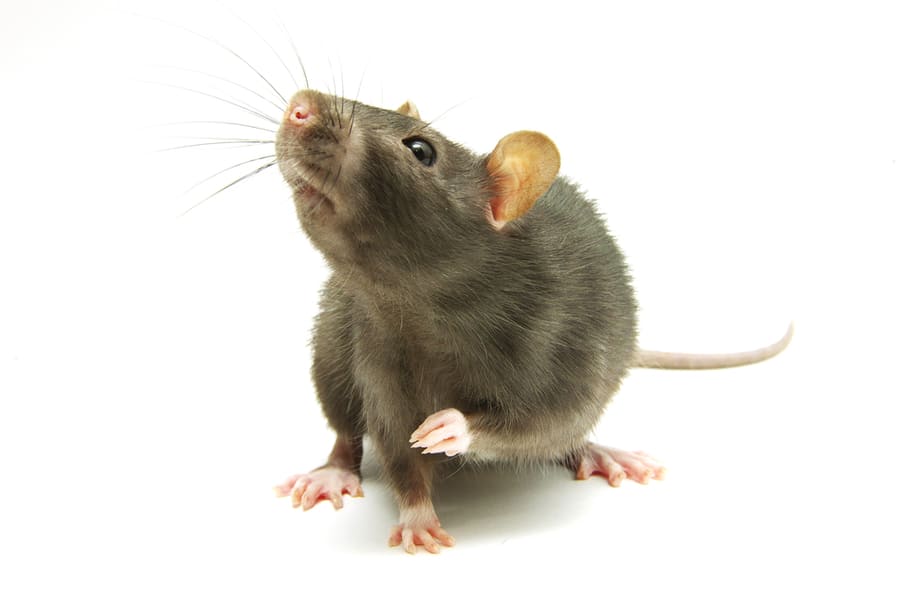
Rats are a problem in your home or office, so you should take preventive measures to keep them away.
The scent is a powerful rat deterrent that you can use for this purpose.
1. Natural Scents

The most effective scents to deter rats are generally those that occur naturally.
Natural herbs smell refreshing, tangy, and pleasant, but rats find them overpowering and repulsive.
Herbs and Essential Oils

Studies show that rats spent substantially less time hanging around areas with lingering peppermint and other essential oils.
Use Chamomile To Spray Your House Thoroughly

Using chamomile flees rats from your space because of its potent earthy smell. Make a spray by mixing six drops of chamomile essential oil with two cups of water.
Adding a pinch of ground chamomile makes this mixture more impactful, which you then use to spray areas where rats traffic.
Also, wipe doorways and window frames, or pour this infusion into rat burrows. Another suggestion is picking fresh chamomile leaves and placing them within rat nests.
Apply Fresh Lemon Juice Around Your Kitchen Surfaces

Because lemons are naturally citrusy, you can use some fresh lemon juice.
Apply it on countertops, kitchen drawers, and under sinks to deter rats.
Rats find it hard to endure its scent, and they’ll flee from your space immediately.
Use Rosemary Essential Oil To Repel Rats
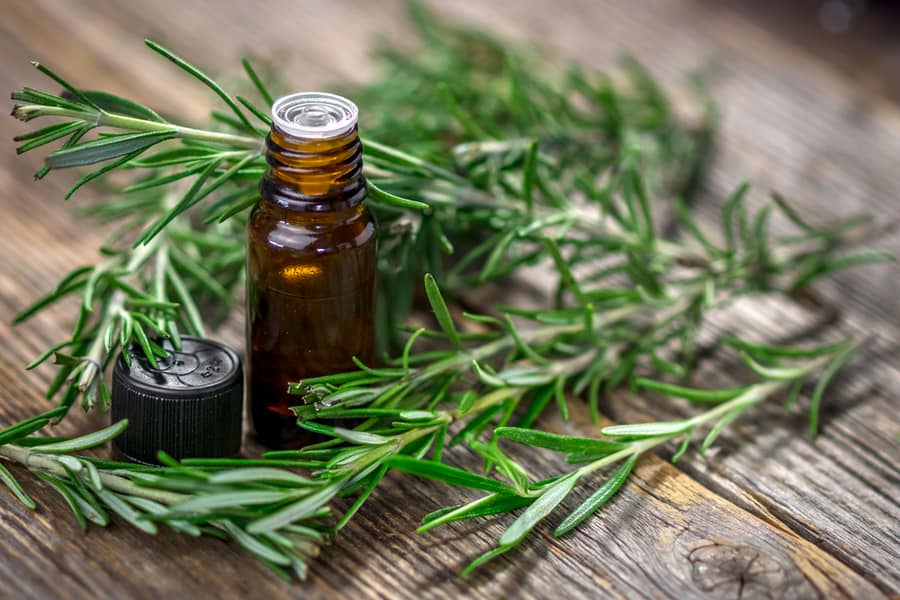
Rosemary oil contains thymol, an element present in a variety of plants that functions by upsetting rats’ neurological systems.
To use rosemary oil, put water 3/4 full in a spray bottle. Add 12 drops or more of rosemary to the water.
Shake well and spray in specific areas such as window sills, door frames, under your bed, and in any other area of concern.
Alternatively, place a few fresh rosemary sprigs next to the kitchen or basement storage area where rats enter.
Using Fresh Peppermint Works Just As Great
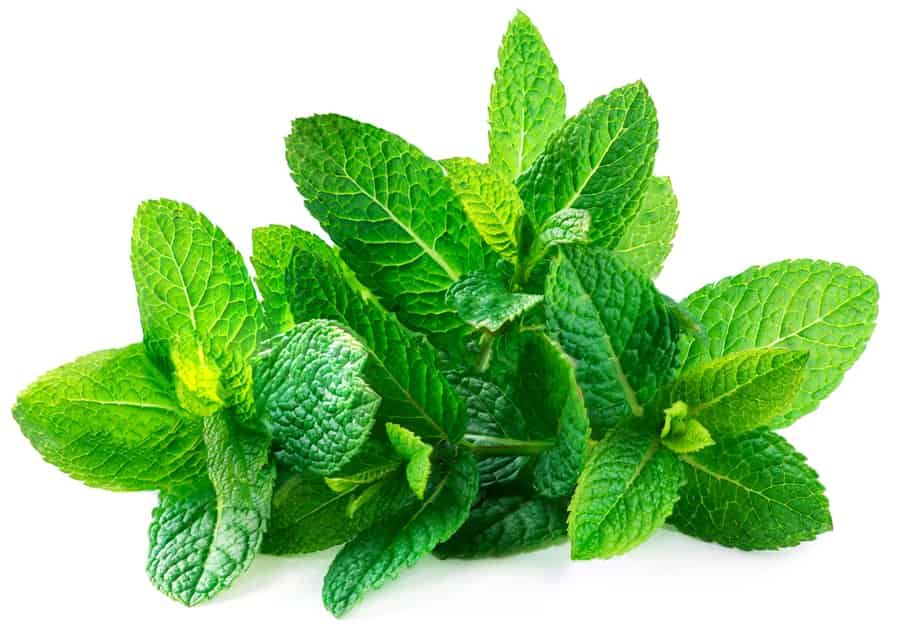
You can use fresh peppermint leaves from the garden or an essential oil solution.
Spreading mint around rat minks is sufficient. You can also use it as a repellent by putting a few drops of peppermint essential oil on a cotton ball.
Place the cotton balls where there’s rat activity.
Growing peppermint outside around your house perimeter also works great in keeping rats at bay.
Use Eucalyptus Oil To Wipe Surfaces
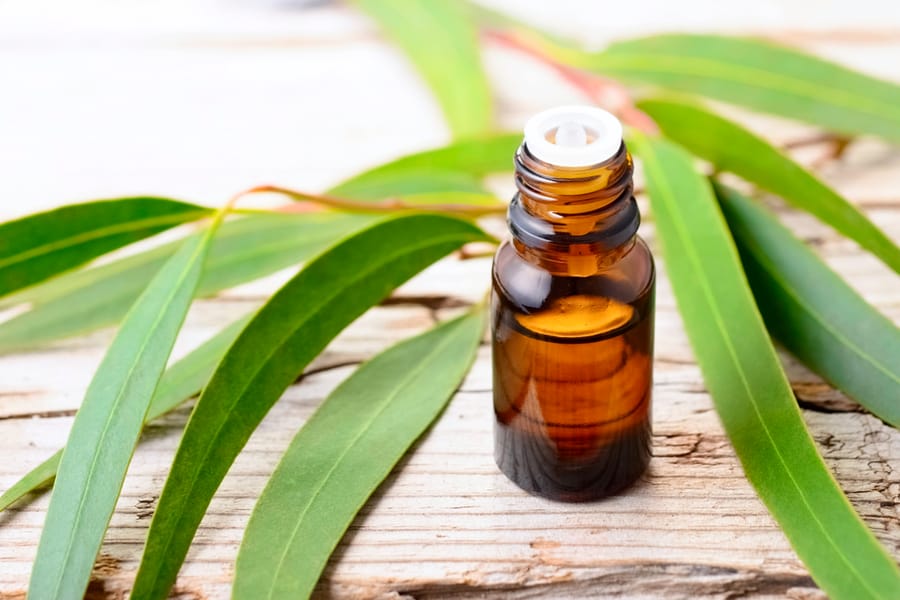
The fragrant scent of eucalyptus helps deter rats from accessing your space. Eucalyptus oil contains 1,8 cineole compound that repels rats.
Among the ways that you can use eucalyptus oil to prevent rats from entering your home include:
- Apply eucalyptus essential oil to cotton balls which you can place in room corners, drawers, cupboards, and doorways.
- Clean door handles, walls, windows, countertops, floors, and more.
- Mix two teaspoons of eucalyptus oil by adding a few drops of dish detergent to one cup of water.
Shake everything well, and spray the mixture wherever you see or suspect rats. Repeat after a week when the aroma starts to vanish.
Combine Garlic and Onions for Best Results

Allicin is the primary ingredient in garlic, while onions contain sulfur chemicals. Both have potent odors to keep rats away.
Use garlic and onion cloves or powder to cover rat entrance areas.
You may also combine garlic and onion to make a spray: Take one onion, four cloves of garlic, and four cups of water, and bring to a boil. Let this mixture cool before using.
Another tip is to spread chopped garlic and onions outside.
Sprinkle Camphor Powder Where There’s Rat’s Activity
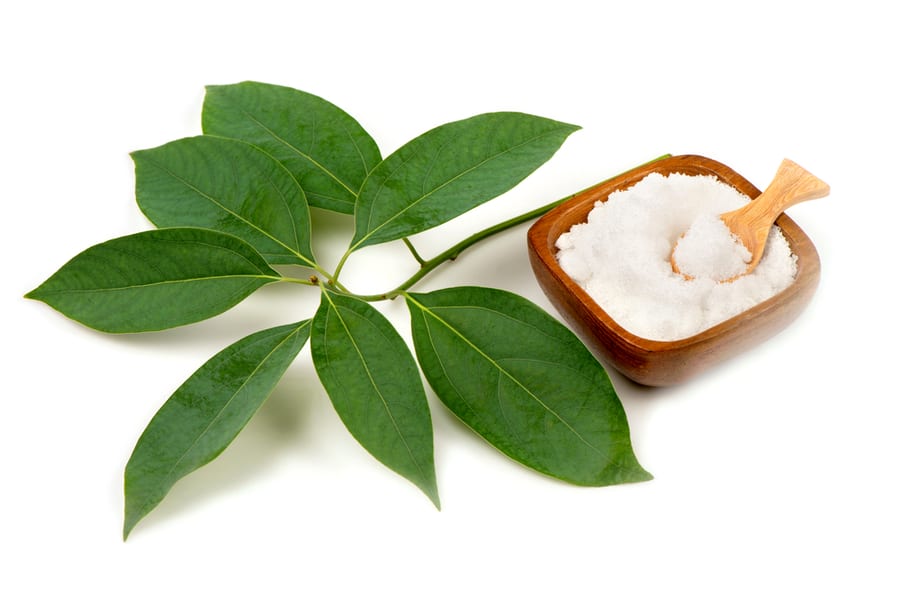
Camphor is a plant whose lustrous leaves produce a smell that keeps rats away.
The severe symptoms in rats caused by camphor’s potent smell include nausea, diarrhea, and skin irritation.
You can place the powdered camphor leaves around corners, under the door, and in other locations where rats are likely to enter.
Pros of Using Natural Scents
- The pleasant aroma of herbs and essential oils leaves your environment smelling fresh.
- Natural scents have a soothing effect on people of all ages.
- Natural scents such as lavender and peppermint can help treat anxiety and depression, enhance sleep, and relax muscles.
- Since natural scents don’t contain any potentially dangerous chemicals, they are safer for everyone.
- You can pick natural herbs from your garden, so they’re always fresh.
Cons of Using Natural Scents
- Depending on how long the herb has been growing, it may take some time until the aroma is potent.
- You must reapply the essential oil mixture on cotton balls practically daily to maintain its effectiveness, which degrades with time.
2. Spicy Scents

Using a spicy scent is an age-old process that has proven effective.
The commonly used spices are red peppers, black pepper, and cayenne.
Mix Red Peppers and Chili To Repel Rats
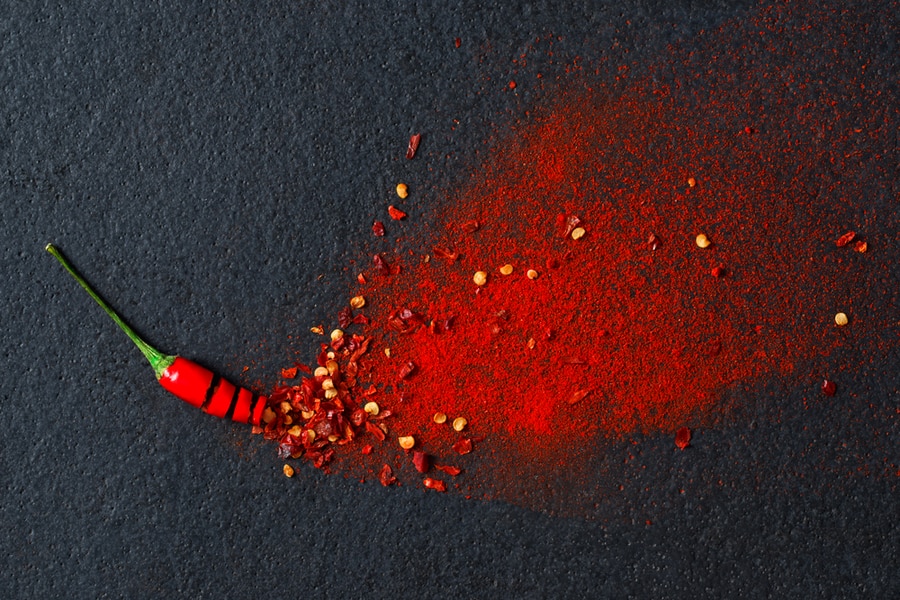
Capsaicin is a substance present in red peppers and chili powder.
This scent is so spicy that it repels rats and prevents them from returning to where they smelled chili because capsaicin irritates their scent receptors.
To make a hot pepper solution, combine dish soap, water, chili flakes, and sliced habaneros. Spray this mixture in rat hotspots.
Also, you can sprinkle chili powder around rats’ entrances daily.
Using Ground Black Pepper & Cayenne Is Effective
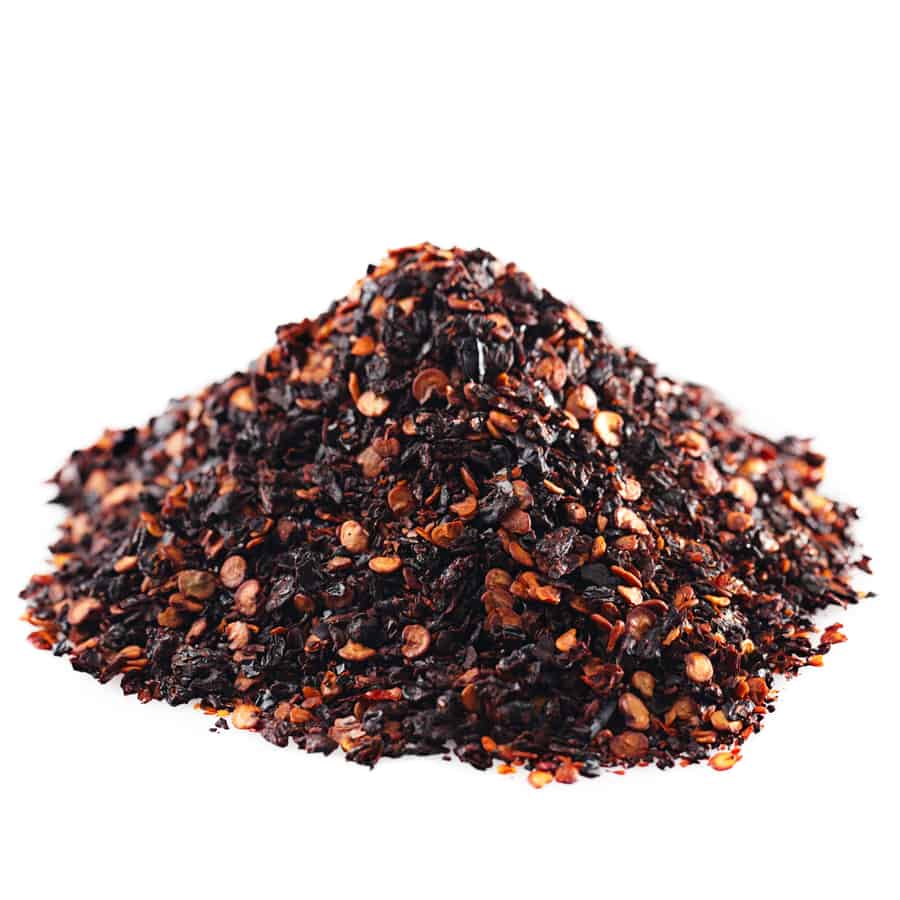
Black pepper contains a phytochemical called piperine that gives peppercorns their distinctive flavor.
Piperine is poisonous to rats because it naturally irritates their nasal passage. Collect and grind black peppercorns to make a more strong rat deterrent.
Black pepper mixed with cayenne pepper permanently deters rats because of the effect of piperine and capsaicin.
You can also use cayenne pepper by making a cayenne spray. Mix one cup of water with one tablespoon of cayenne pepper.
Put them on heat until the liquid boils. Simmer for 30 minutes on low heat.
Strain the mixture and pour the liquid into a spray bottle. Sprinkle it in areas where rats are likely to pass or inhabit.
Pros of Using Spicy Scents
- Cayenne pepper is an ideal long-lasting rat repellent.
- Spices are affordable and readily available.
- Spices are easy to use.
Cons of Using Spicy Scents
- Pepper irritates the eyes, nose, and mouth.
- You should avoid applying it on clothing, furniture, and areas that pets and people frequent.
- Little pepper flakes are easily stepped on, wiped, or washed when you spread them indoors or outdoors.
You must wear protective gear when handling spices to prevent irritation and skin burns. These includes:
- Facemasks
- Gloves
- Apron
3. Chemical Scents
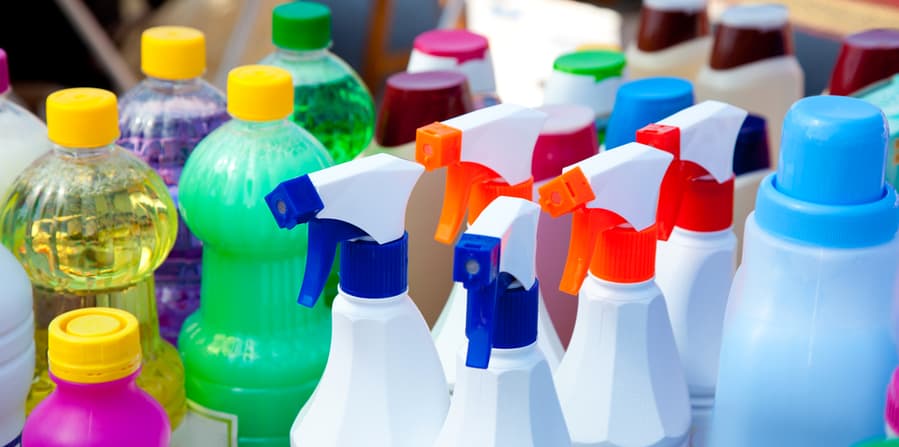
Did you ever think you’d find another use for most household cleaning solutions?
Well, now you do. Cleaning agents have a strong chemical smell, and in addition to cleaning surfaces like tubs, tiles, and sinks, you can use them to repel rats.
Soak Cotton Balls in Ammonia and Use them To Repel Rats
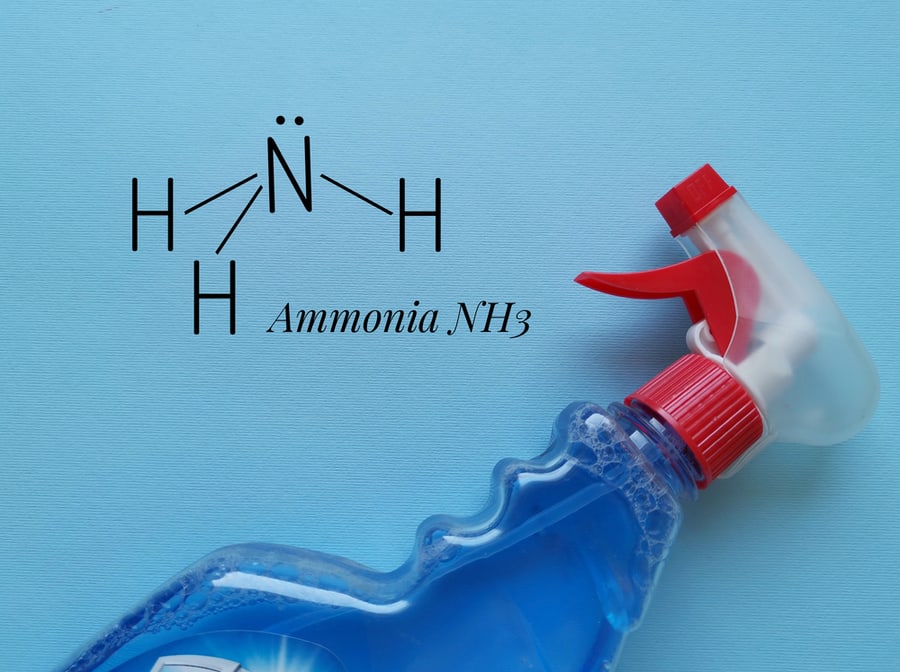
It has a strong scent which makes it handy. As a result, it is quite effective as a deterrent in keeping rats away.
Prepare by mixing two cups of ammonia, 6.5 ounces of water, and a few spoonfuls of detergents in a bowl.
Place in rats’ entrances. Additionally, spray this mixture in rat hotspots.
You can also soak some cotton balls in this solution before putting them in open bags or containers.
Scatter these bags and containers near rats’ hotspots.
Consider your workstation, shelves, window sills, attic spaces, basement, drain pipes, or where you notice rat droppings. Replace the cotton balls after 14 days.
Use Dilute Bleach While Cleaning
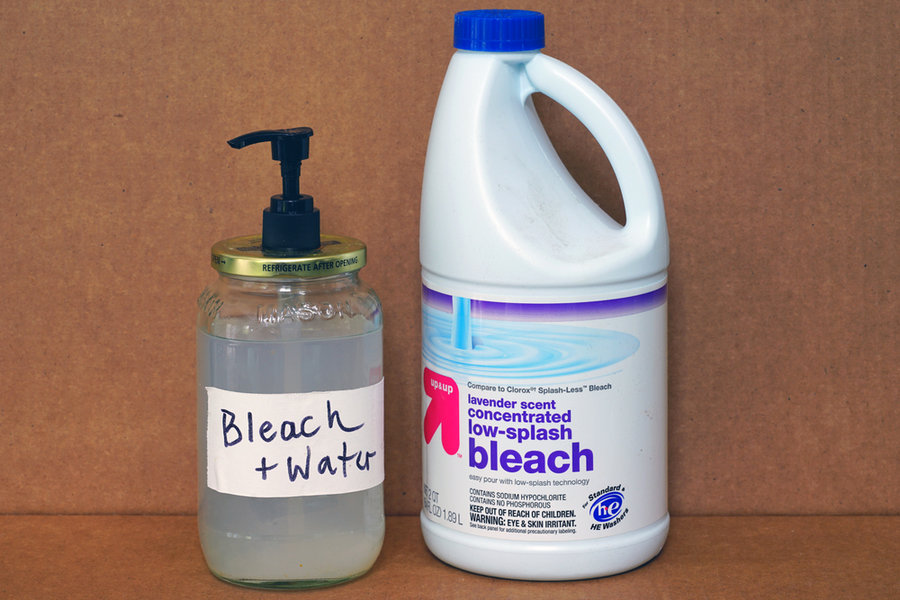
You frequently use bleach to disinfect and restore shine to stained services. Bleach also doubles as a rat deterrent thanks to its strong smell.
While cleaning your house, use bleach in dilute form to clean floors and tubs, and wipe window sills, doors, and shelves.
Alternatively, spray corners, under the sink, and behind furniture.
Pros of Using Chemical Scents
- Rats stay away from your space, thanks to the chemical’s strong scent.
- It’s easy to prepare. You only mix the correct quantity and spray around potential rat infestation areas.
- There are no tedious applications.
Cons of Using Chemical Scents
- A chemical smell can be overwhelming to pets and people.
- Bleach degrades surfaces and the color of clothes, carpets, and other fibrous materials.
Use Scents To Keep Rats Away
Are rats beginning to nest in your space? It’s critical to stop them before they start causing havoc throughout your house and spreading infections.
Natural scents, spicy aromas, and chemical scents deter rats, and you can choose what works for you.
Along with these deterrents, you must take other preventive measures like maintaining a tidy living area, sealing wall cracks, storing food in airtight containers, and setting rat traps.
It’s important to remember that you will achieve the best results by using both physical and scent-based deterrents.
Frequently Asked Questions
Which Rat Deterrent Works the Best?
The best rat deterrents are those that grow naturally. Scents from plants and essential oils are repulsive to rats but can serve as air fresheners.
Additionally, natural fragrances are safe for people and pets because they don’t contain harsh chemicals.
Does the Smell of Animals Deter Rats?
Since rats are prey creatures, the smell of protective predators like dogs or cats may deter them from nesting in your space.


